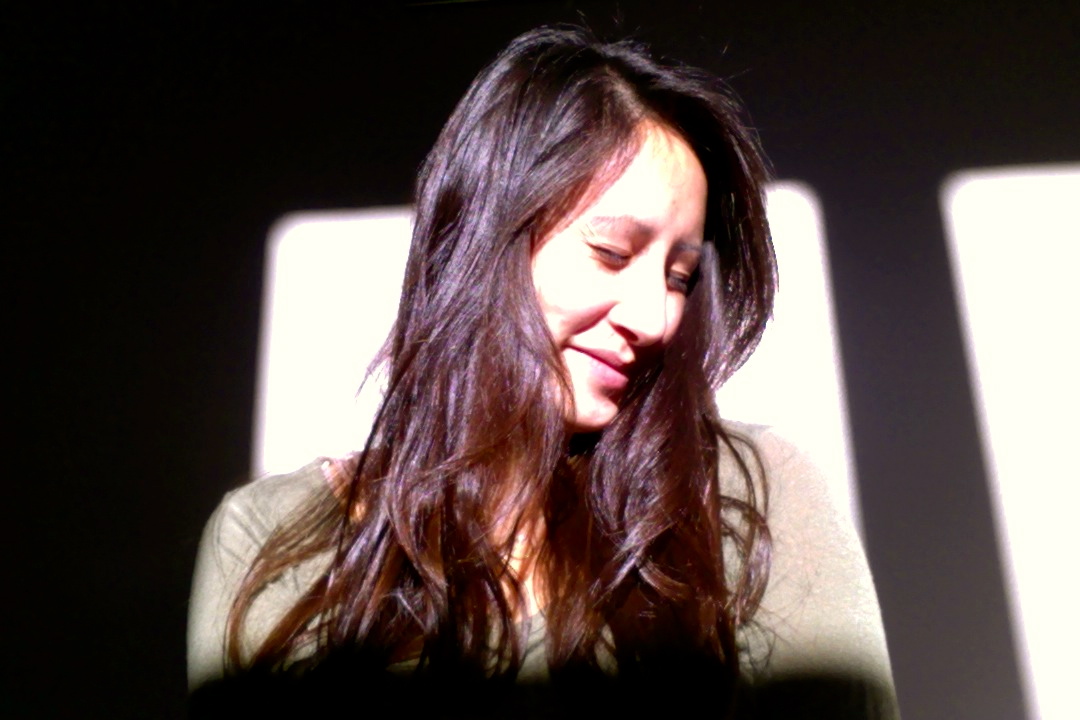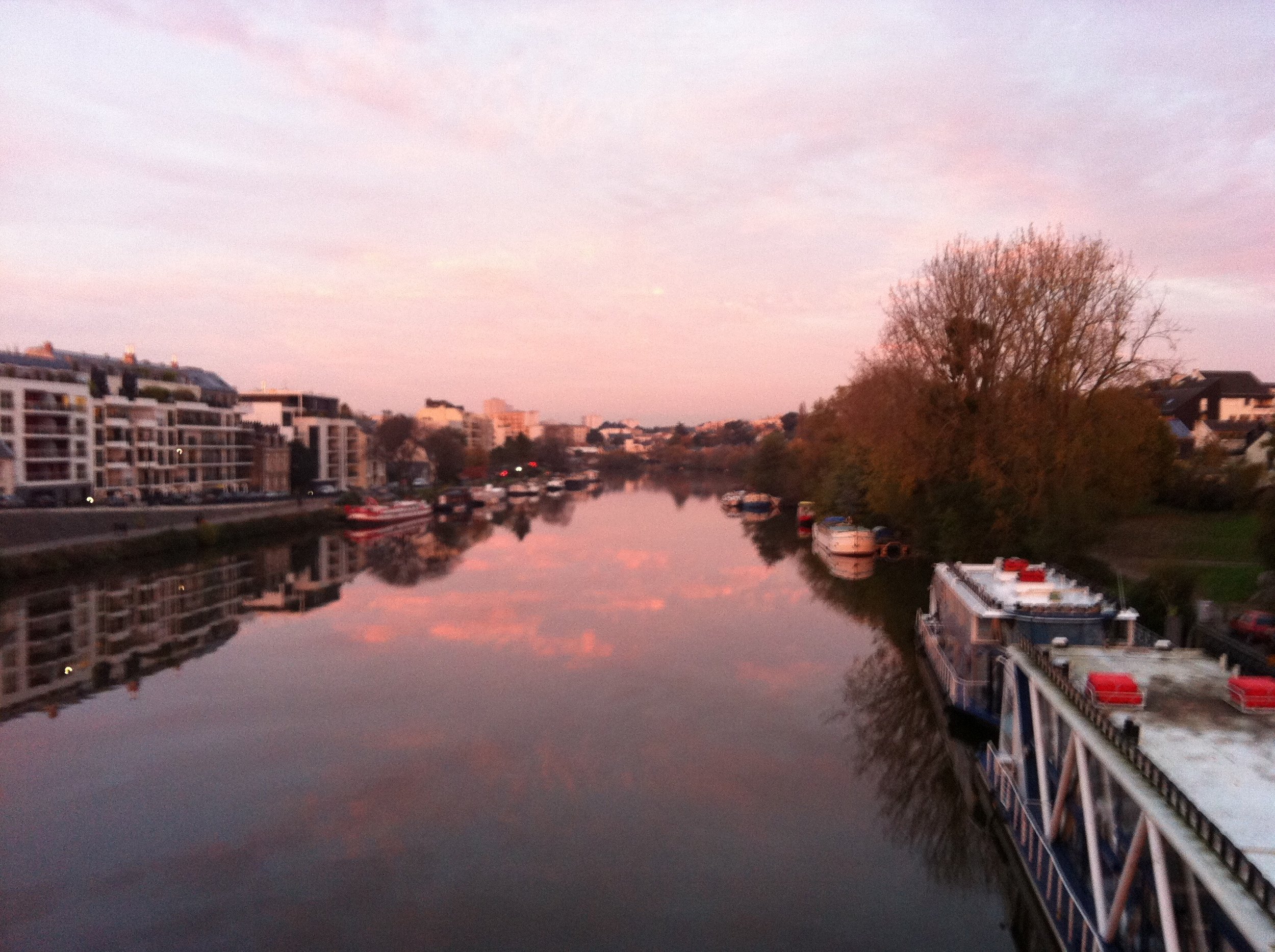The Price of Living
/If there's anything I've learned in the past few weeks, it's this: Sometimes, the most important life lessons are also the ones that are the biggest pain in your %#$. Three weeks ago, I went horseback riding in rural Argentina. Shortly into the ride, the horse spooked and reared, hurtling me backwards. As I hit the ground, the horse fell atop me, landing on my pelvis in what was significant blunt force trauma.
The accident resulted in three emergency rooms, four traumatologists, six ambulances, 30 doctors and nurses and paramedics, and one bilateral pelvic fracture. Doctors equated the accident to falling off the balcony of a building. Then being hit by the force of car. So needless to say, I can’t fully bear weight on my feet for awhile. Thankfully though, healing has been slow but steady so far, and doctors expect that I'll make a full recovery in due time.
Until then, I want to tell you a story. It’s about Superman — a story about living, about people, and about purpose.
ON THE PRICE OF LIVING
Last night, an old lady approached me. You know, the sort of lady who’s not just talking to you. She is TALKING to you. Having overheard the story of my accident, she said, “That’s what happened to Superman.” I stared. Confused. Then I smiled, as her reference to Christopher Reeves dawned on me. She continued, “Well then, I suppose that makes you Superwoman, eh?”
I laughed and told her I was not quite so super, just a woman on an adventure to live. And so she said, “There’s no reason it happened to him and no reason it happened to you. It could’ve been anything, but that was the price he paid. This was the price you paid.” Puzzled, I asked, “The price?”
“Yes,” she said, cocking an eyebrow. “The price of living.”
I came home and wrote down every word, as if afraid the resonance would be fleeting. I wrote them down to remind me and to tell you one thing: She was right. The price to live, to adventure is not free. Risk is founded on the premise that we’re willing to accept vulnerability. It’s knowing that you’re putting your head & your heart on the line. Because you believe the positive outcome is worth it. So rightly or wrongly, you take the leap. Based on a precarious combination of human logic & instinct, you jump. You jump, and you hope like hell that you learn to fly…or that there are some very soft pillows at the bottom of that dang cliff.
ON RISK
Risk is the bedrock of reward. Success, fame, adventure, friendship, love, money, and the like. But reward has a price. Accepting the price is acknowledging that the flip side of risk could lead you to failure. To hurt, to heartbreak, to expense, to trauma, to hardship. To a fate you did not want.
The pain following the trauma was raw and searing. Moving hurt. Not moving hurt. My heart raced, and my thoughts galloped right along with it. Months of training to become a yoga teacher had taught me to breathe at my physical limits. But mentally, I was in a thousand places at once. My thoughts crashed and rolled like a small ship in a stormy sea. I oscillated between irrational and inconsolable — apologizing to my friends for ruining the trip and then questioning a future that I no longer knew. I did not want the emergency rooms, the pain, the painkillers, the disability, the wheelchair, and the interruption to the life I’d been living. To be able-bodied and well is a privilege. That privilege teaches you that we're not entitled to a tomorrow like today.
So by nature, the price of living is steep. Because if risks were just cheap thrills, everyone would take them. The very point of risk is that it’s hard. That you don’t know the outcome. That every day is a gamble, wherein you ask yourself: How much do we endure to live a life that is truly ours?
“Only those who will risk going too far can possibly find out how far one can go.” - T.S. Eliot
In the past few weeks, I’ve come to know this price more intimately than ever before. The days since the accident have turned my life upside down. Literally.
I’ve stared at the the ceiling of countless emergency rooms; silently screamed at the thousands needles pricking my pelvis; and blacked out in pain & cold sweats. I’ve grappled to understand a world where the easiest human things — sitting, standing, walking, showering — are now the hardest for me.
But even if I could, I wouldn’t change what happened. I would still take the risk. I'd still buy the plane ticket. I’d still get on the horse. I’d still choose the adventure. Because you cannot have dreams without having nightmares too. You cannot purport to change the world — to lessen its suffering and hardship — but cower when you face those very same lessons yourself.
ON BRAVERY & TRAUMA
In my eyes, taking risks doesn’t mean that you’re not afraid. It means that you buy wholesale into your gut instinct. That despite risking everything, you risk nothing because fear is no way to live at all. After the accident, people asked if I’d ever ride a horse again. “Yes,” I answered in a heartbeat. People seemed surprised, taken aback by this. Many told me they admired how bravely I’d acted, how fearlessly I’d handled the situation and emerged from the outcome. I was deeply surprised by those words. Because honestly, I felt anything but brave.
As I was wheeled into the ER, tears made of every emotion cascaded down my cheeks. Salty and unrelenting. I felt fear acutely. Fear that things would not be “ok.” Over and over, the same words played in my head: “I'm all right! I'm all right, right? I have to be all right.” I am incredibly lucky the accident wasn't worse and privileged to have received top notch care. But there is no law in the universe that said I had to be all right. I didn’t deserve to be ok more or less than anyone else. To find a fate better or worse than Superman, himself.
I’ve been fiercely positive in my recovery not because I’m brave, but because I’m bold. Not because I’m fearless but because I accept that risk is the price of a life that is authentically mine.
I’ve spent the better half of recovery coming to terms with what that means. And to be candid, I’m far from having all the answers. What I do hope is that this experience continues to underscore what is truly important. And already, I can tell you that it begins with two things: people and purpose.
ON PEOPLE
Through this experience, I’ve learned more than I ever imagined about people. So you want to know who your real friends are? Hit the auto eject button on a horse, and I guarantee you’ll find out. (Note: This is a really stupid idea. Please do not try this at home.)
Trauma is like putting an ultraviolet light on the invisible ink of your relationships. It shows you things indiscernible in daylight.
The silence of few has been deafening. But far and above, the care & kindness of so many have changed how I think about pity, sympathy, and empathy. This outpouring of love has been nothing short of monumental — a feeling that impossibly restores your faith in humanity. Heartfelt messages, handwritten cards, care packages that could light up a million watt smile on your face. Offers to help; hugs on hugs on hugs; and sunny flowers that smell far better than your dirt-caked hospital gown and sponge-bathed body.
I cannot tell you how much love means in those moments. To Lucia: Te quiero mucho, chatacita. To my parents: Was this in the instruction manual for kids? I appreciate you, I do! And to each and every one of you wonderful people who sent thoughts, thank you. It turns out love, not laughter, is the best medicine right now. Because to be honest, laughing really hurts with a broken pelvis.
ON PURPOSE
I had a lot of plans for 2017. None of them included being thrown from a horse. Relearning how to walk. Or repeating the phrase “Your pelvis is like a pretzel” about 472 times. But here we are, beating on against the current. Living the dream or dying trying.
20 days have passed — some good, some bad. Dreams and nightmares run cobbled together. These days have been dog-eared by a deep perspective shift on purpose. Trauma is at once complicated and crystal clear. It ruptures every notion of normal in mere seconds. But in doing so, it strips everything away to black and white. In the face of life & other near death experiences, purpose becomes unavoidable. You realize what matters. And what does not.
These life lessons don't come easy. By nature, they arrive at the most challenging of places and least convenient of times. Then again, that's sort of the point. They’re not just lessons; they’re inflection points. Jolting, arresting, illuminating. They’re glaring stop signs that force us to take stock of how we’ve been living and radically alter our direction to a truer north. The accident taught me something I’d known but perhaps forgotten—we must recognize that we’re fallible, breakable, vincible. But even more than that, we must be determined, unflappable, bold.
I’ve spent the last year waiting. Waiting because people would say, “You are young. You have plenty of time. Impact can wait.” I listened. Silenced my inner voice and chalked it up to grey area. Because who are we to tell the world otherwise?
Then again, who are we not to? The truth is, we will never be _____ enough, according to someone else’s rules. Your purpose is yours alone. It’s the gasoline that reignites your heart and sparks an urgency to change. To battle the ease of contentment and make an impact that counts. You see, I don't believe that impact is this "big bang moment" at the end of the line. It's an everyday effort that we pursue doggedly and wholeheartedly in an attempt to do something meaningful. Whatever that means to you.
So there’s a new plan in order for 2017. I’m throwing dynamite at my life, hoping for fireworks rather than explosions. I’m getting back on the horse because I'm a dreamer and a perennial pain in the #%$. I’m a woman on an adventure to live. And I'd love your company.
Let's live out loud and color outside the lines. Let’s tell the people whom we love just that. Let’s take risks. And yes, pay the price of living where it is due. Let's do something a little crazy, a lot of lovely, and maybe just a tad super.
If that’s the case, I suppose you can call me Superwoman after all.

















I’ve spent the better part of the past year trying to figure out how to explain the recovery process. Both to myself & to others. Most often, I’m asked, “Are you back to normal now?”